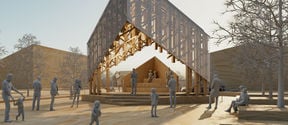Researchers are importing electricity and internet connections to a Namibian village – required technology can be transported in a pickup
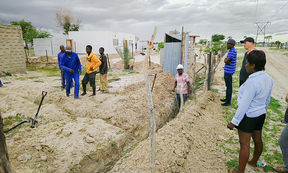
From the Finland’s Independence Day on, residents of the Namibian village Oniipa will be able to use electricity and the internet, thanks to a solar energy system that is connected to the internet. All this happens, as the Finnish research project Fusion Grid aiming to find alternatives for traditional electricity and network solutions will be piloted for the first time.
Oniipa is a Northern Namibian village of approximately 700 inhabitants, and there are many developing areas like it around the world. The key idea in Fusion Grid is that, instead of building heavy structures, all that is needed for the electricity and internet connections can be transported with, say, a pickup.
‘If you buy a sofa from Ikea, you will need a van or pickup to transport it – but not more than that,’ says Professor at Aalto University’s Department of Computer Science Marko Nieminen.
After transportation, the sofa needs to be assembled with the help of simple instructions that are understandable for everyone. The same applies to the telecommunications and electricity connections that are taken to Oniipa: anyone should be able to install them on their own and with low costs.
‘The idea is that the system is modular and there are as few attachable parts as possible, which would make it even easier than assemble Ikea furniture,’ says Project Manager of Fusion Grid and post-doctoral researcher at LUT University Antti Pinomaa.
Fusion Grid is a joint research project by Aalto University, LUT University, Green Energy Finland and University Properties of Finland, and it is now piloted for the first time. Previously, also Nokia was part of it with its Kuha Mobile Network.
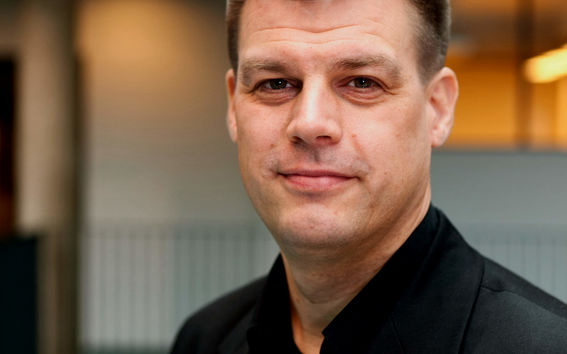
Marko NieminenWe’re not trying to guess what kind of business could be profitable for the locals but rather provide tools and technical platform for it.
The Finnish company Salo Solar’s solar panels are a basic element of the electricity solution taken into Oniipa. The solar panels load the batteries of the system that then store energy for the night. The small solar plant works as a so-called off-grid-microgrid. It provides electrical energy to the people living in a community of a few houses so that they can, for example, charge mobile devices, use a fan, watch the television, and listen to the radio.
The pilot seeks to take into Oniipa a system of 12 solar panels that charges Lithium-ion batteries storing energy for the night. Researchers estimate that this type of a system should provide enough electricity for the everyday life needs in five households. The number of solar panels and batteries can easily be increased: a hundred similar systems could supply electricity for every home in Oniipa, for instance.
The researchers’ next plan is to attach Nokia’s 4G LTE base station to the solar plant in order to provide better digital services to the residents of Oniipa. The range of the 4G base station is two kilometres, and according to estimates, the system could be used to control the SIM cards of 600 simultaneous users.
‘In the test, we get to test our concept in reality. We get to see how much of our guesses have been on point,’ Pinomaa says.
Technical readiness for businesses
Fusion Grid relies on the notion that once electricity and telecommunications connections are introduced in small communities of poor countries, they will not only improve the quality of life for local people but also enable a new type of small entrepreneurship to emerge in the area with the aid of digital services. One goal of the pilot is to find out what types of possibilities electricity, the internet, and digital services can bring to these areas.
‘We’re not trying to guess what kind of business could be profitable for the locals but rather provide the tools and technical platform for it,’ Nieminen says.
Creating new employment opportunities is also important for ensuring that there are enough investors for the infrastructure after the actual research project so that similar technology could be introduced in new areas.
‘No one will finance something they know will not pay itself back,’ Nieminen says. ‘For example, national development banks are interested in such investments, but they also want to witness it genuinely improving living conditions and creating a framework for new possibilities.’
Business Finland and the Ministry for Foreign Affairs of Finland have funded the Fusion Grid project, which started in 2018, by 1.5 million euros. The project continues until June 2020. The current pilot provides the researchers a change to collect valuable information about user experiences. The most important results of the project will be achieved during the pilot.
Further information
Marko Nieminen
Professor, Aalto University
Tel. +358 50 368 4763
[email protected]
Antti Pinomaa
Project Manager, Fusion Grid
Post-doctoral researcher, LUT University
Tel. +358 40 833 7291
[email protected]
- Published:
- Updated:
Read more news
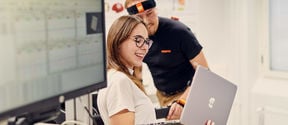
Health Technology Engineering equips students to create innovative technical solutions to health challenges
New Master’s programme combines engineering knowledge with practical understanding of health-related issues
Get to know us: Assistant Professor Ville Miikkulainen
Miikkulainen most recently worked as University Lecturer at Aalto University.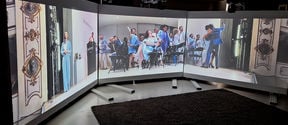
Open demo-day in DAVE of Aalto Behavioral Laboratory
Open house event for Dynamic Audio Visual Environment of Aalto Behavioral Laboratory on 7th of May 2024, 13:00-16:00